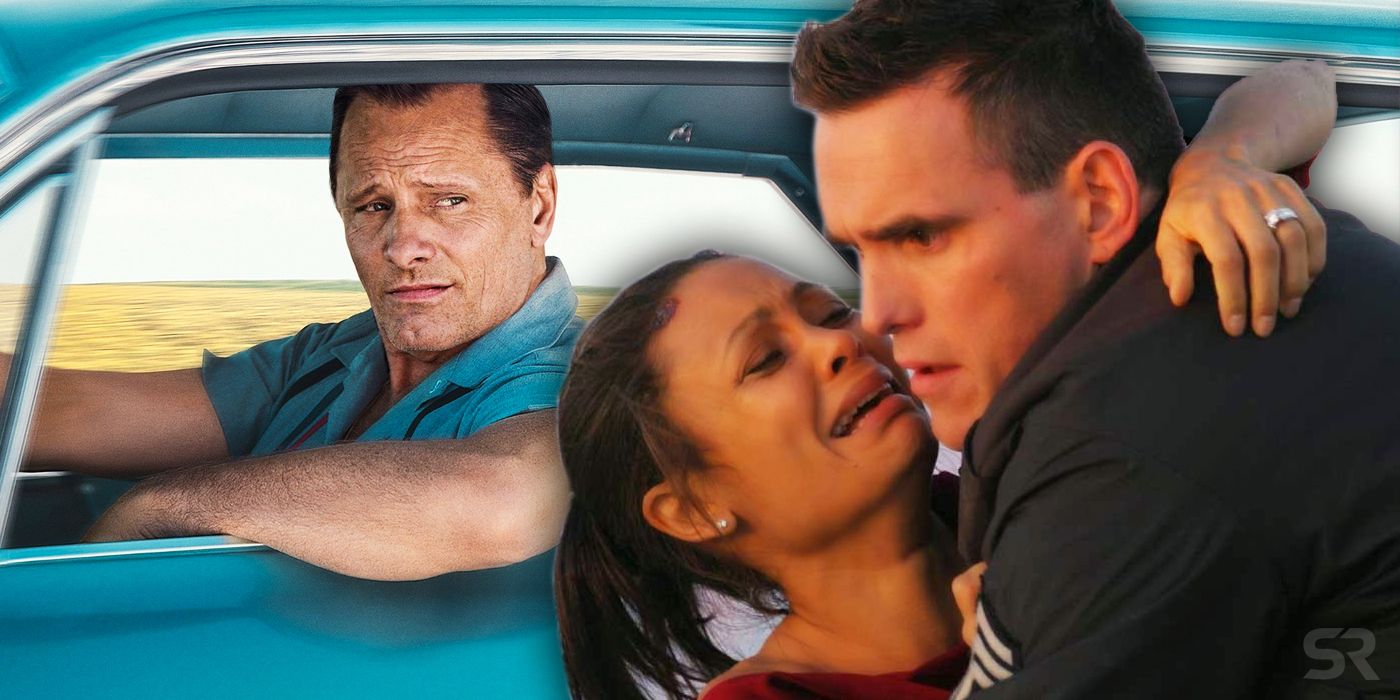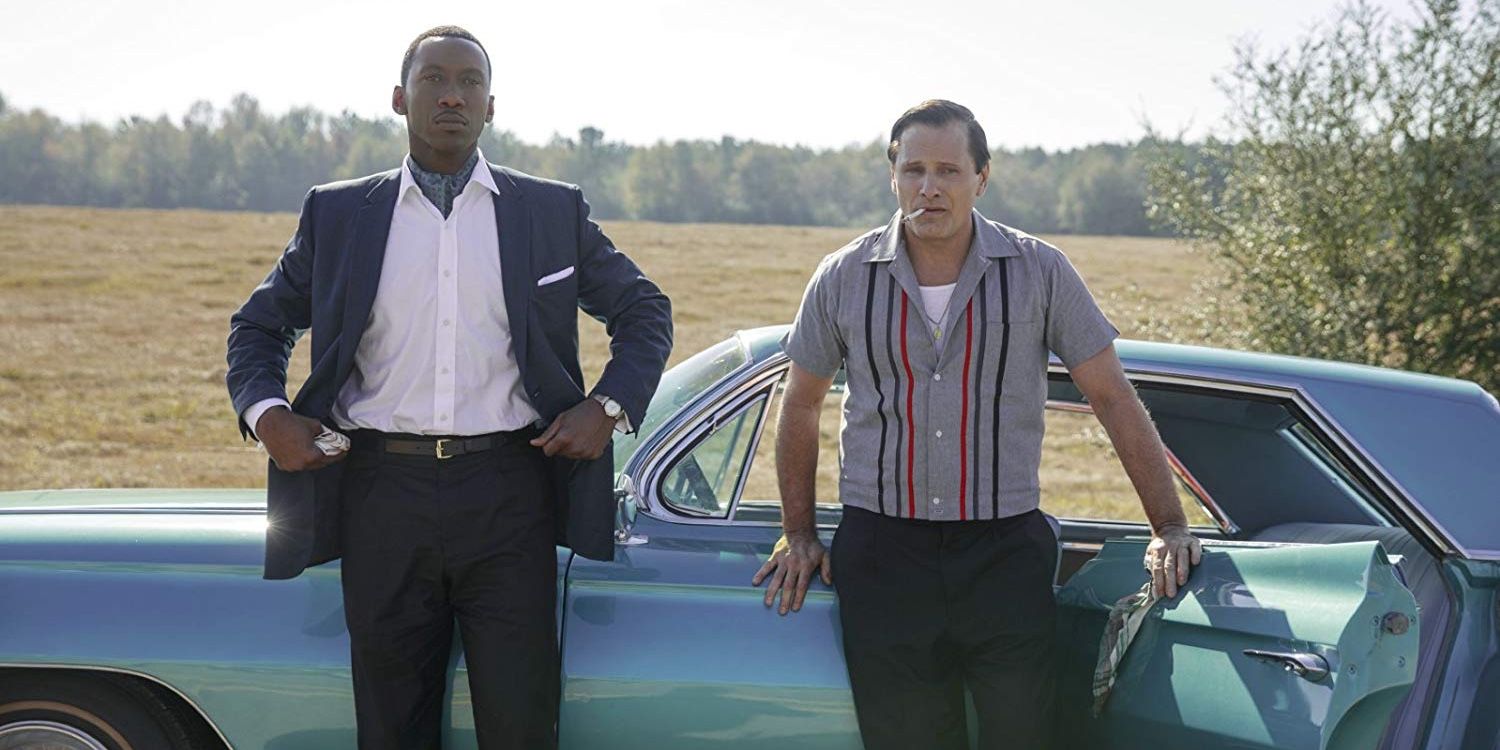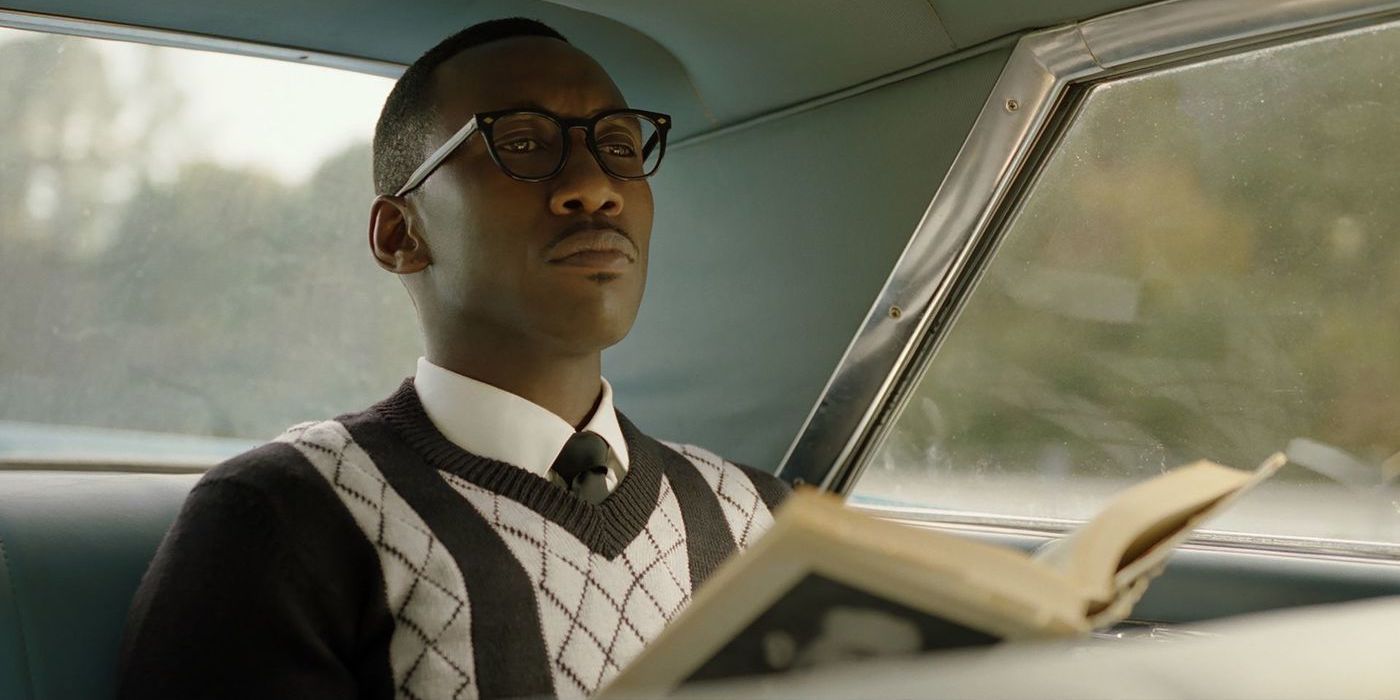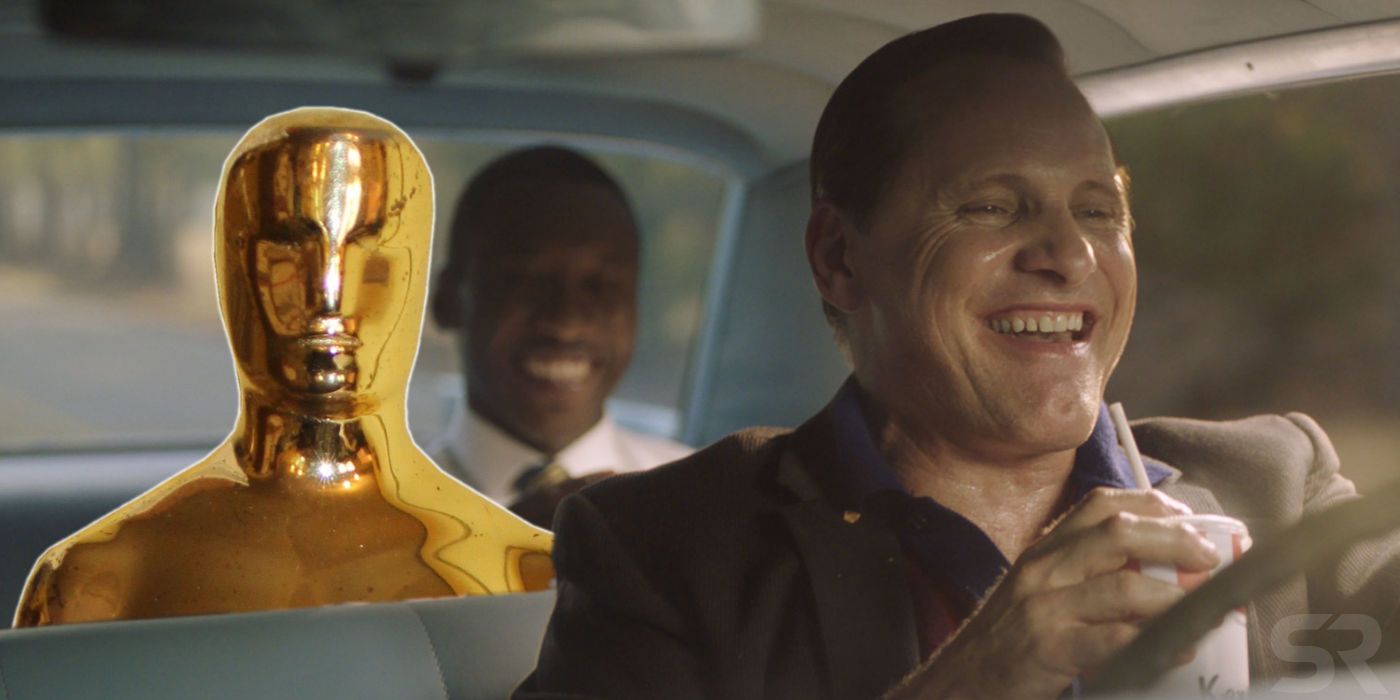https://ift.tt/2EvIBea 
Green Book is the worst Best Picture in years, a dark spot on the 91st Academy Awards, and one that could set the way Oscars back. Every year, film fans have the same arguments about the Oscars: what do they symbolize and are they really all that important? Indeed, it's always worth remembering that the Academy has never given out their prestigious awards based on merit alone. There are multiple factors at play and they arguably hold more sway over the final results than whether the movies in question are any good or not.
This year's ceremony felt especially representative of that detail, as Peter Farrelly's highly divisive biographical drama Green Book beat the odds and won Best Picture, along with two other major awards (Best Adapted Screenplay and Best Supporting Actor). Social media immediately erupted, and critics questioned the choice, given that the presumed front-runners were Roma and Black Panther, both of which would have been more popular choices.
RELATED: Why Green Book Won Best Picture
The decision has been, to put it mildly, controversial. Samuel L. Jackson seemed genuinely stunned to be awarding the film Best Adapted Screenplay, Spike Lee let his displeasure be known to all, and even the film's star Mahershala Ali seemed to find the moment discomfiting. In an evening full of positive signs of progress for the Academy and Hollywood alike, that final award felt like a number of steps backward. It's not just that the film is a bad Best Picture choice – and indeed one of the worst in the past couple of decades – it's that it symbolizes so much about the film industry's stubbornness and unwillingness to change, and how that may come back to bite them hard in the future.
- This Page: Why Green Book Doesn't Deserve Best Picture
- Page 2: What Green Book's Win Really Says About The Oscars
Why Green Book Doesn't Deserve Best Picture

The nature of Green Book's win cannot simply be discussed in terms of mere quality, but it's a good place to start. While it wasn't even the worst Best Picture nominee of the year – that honor still falls to Bohemian Rhapsody, a film of often baffling levels of creative ineptitude – the staid and uninspiring formula of Farrelly's film still did not feel worthy of the top prize. First of all, the competition was simply too great and completely out of Green Book's league. It was one of the weaker reviewed films of this year's nominees and its critical and commercial successes were easily outweighed by films like A Star Is Born or Black Panther. Where the Marvel film and others like Alfonso Cuaron's Roma, Yorgos Lanthimos's The Favourite and Spike Lee's BlacKkKlansman offered fresh, vibrant and urgent pieces of storytelling across styles and genres, Green Book felt like a film out of time, the sort of cozy drama made mostly for white audiences in the 1980s. There's a reason people kept comparing it to Driving Miss Daisy.
On a basic film-making level, Green Book is fine but distinctly uninteresting. It's directing 101, the basic foundations for a questionable script, an askew tone and a very mixed bag of performances. Mahershala Ali is expectedly excellent, bringing shades of dignity and vulnerability to Dr. Don Shirley where there are none on the page. By contrast, Viggo Mortensen's turn as Tony "Lip" Villalonga feels like a bad parody of an Italian-American tough guy. It's SNL does The Sopranos but not as funny.
Even before the questionable historical details of the film are touched upon, Green Book being positioned as the best film in a year where the likes of Widows, Eighth Grade, Can You Ever Forgive Me?, The Rider, You Were Never Really Here, and Spider-Man: Into the Spider-Verse weren't even nominated for Best Picture is suspect.
Related: The Biggest Surprises and Snubs at the 2019 Oscars

Paul Haggis's 2004 film Crash remains the benchmark for bad Oscar decisions for a reason. It's a film that has aged horrendously and is more widely accepted today as one of, if not the worst ever, movie to win Best Picture. Competition is tough on that front: from 1952's The Greatest Show On Earth winning in a year where Singin' in the Rain wasn't even nominated, to the now infamous battle between Shakespeare in Love and Saving Private Ryan that resulted in the former's near sweep of the 1999 ceremony, to Ron Howard's A Beautiful Mind beating Moulin Rouge, the first The Lord of the Rings film, and Mulholland Drive (the last one wasn't nominated for Best Picture but was recently voted the best film of the 21st century so far). All things considered, it's actually pretty easy for the Academy to make the wrong choice over the right one.
Obviously, a lot of these victories have aged badly. Nobody would ever consider 1979's Kramer vs. Kramer a more artistically worthy movie than All That Jazz or Apocalypse Now, both of which it beat for Best Picture. However, some wins felt bad even at the time. Shakespeare in Love's win over Saving Private Ryan was widely seen as proof that campaigning mattered more than quality, and its victory remains one of the best case studies we have of the power of the now infamous Harvey Weinstein at his industry prime. The Crash Best Picture win was almost immediately pilloried by critics and film fans, especially since it happened at the expense of the much more commercially and critically successful drama, Brokeback Mountain.
Crash feels like an apt comparison to Green Book for a number of reasons. Both films have juvenile attitudes towards the subject of race, both are keen to position white men as the emotional and moral cores of their narrative, and both feature otherwise well respected leading men hamming it up to near unfathomable levels. Both movies feel like throwbacks to a different era of film-making, but not one we necessarily desire to return to. Crash at least has the benefit of being 100% fiction, whereas Green Book is based on true events and has already faced mountains of criticism for how much the narrative favors Villalonga over Shirley, something his family has called out many times. Each film's very archaic and simplified take on race relations, particularly between black and white people, boils down to that song from the musical Avenue Q: Everyone's a little bit racist. It was out of date in 2005: In 2019, it feels disastrous.
Page 2: What Green Book's Best Picture Win Really Says About The Oscars

The optics of the Green Book situation are a large reason this Best Picture win feels so messy. Like with Crash, Driving Miss Daisy, and plenty other winners before it, this was a case of the Academy making the choice to keep its feet firmly planted in the past. With Green Book, its competition was not only far superior, but more crucial than ever to the times we live in. The Academy loves to be part of that zeitgeist but it's also happy to adhere to the old ways. That left Green Book's competition at something of a disadvantage. For Crash, its win was described as being in large part because many in the Academy "didn't feel it was the right time" to award a film as proudly about LGBTQ+ issues as Brokeback Mountain. For Green Book, it seems the Academy didn't think it was time to celebrate a comic book movie or a foreign language film made for a streaming service.
Related: Black Panther's Oscars Show Superhero Movies Still Have A Long Way To Go
This proves particularly aggravating because the Oscars have spent the past few months desperately trying to prove that they aren't irrelevant in the current Hollywood age. They have heavily diversified their membership in an effort to avoid the exact problems Green Book's win hints at. They eagerly want to appeal to more mainstream populist tastes but the films that best exemplify that still weren't rewarded. A win for Black Panther, Roma or BlacKkKlansman would have signaled a fresh route forward for the Academy, a way for them to position themselves as the true voices of the entertainment majority and not just its old white male elite. Any of those three films winning would have done more to legitimize their place in the business than any made-up Best Popular Film category ever could. They had an opportunity for change and, once again, they rejected it. That's why the win was so troublesome for many film fans. When your options are so plentiful and would mean so much more to people, to choose the status quo feels like a direct challenge to change.
Time won't be kind to Green Book. Like Crash, it'll age badly and future film fans will wonder how it beat out titles like Black Panther and Roma, both of which will inevitably go on to become major parts of modern pop culture history. For now, this is a decision the Academy so easily could have avoided. That it ultimately felt inevitable is one of many signs that the Oscars' refusal to change may put them out of business long before the falling ratings do. These decisions don't happen in a bubble, and if they wish to remain relevant, they'll have to understand why choices like this go far beyond opinion and prestige.
Next: The Best, Worst & Most Awkward Moments From The 2019 Oscars
from ScreenRant - Feed https://ift.tt/2EfrhJ7
via IFTTT



.jpg)
0 Yorumlar